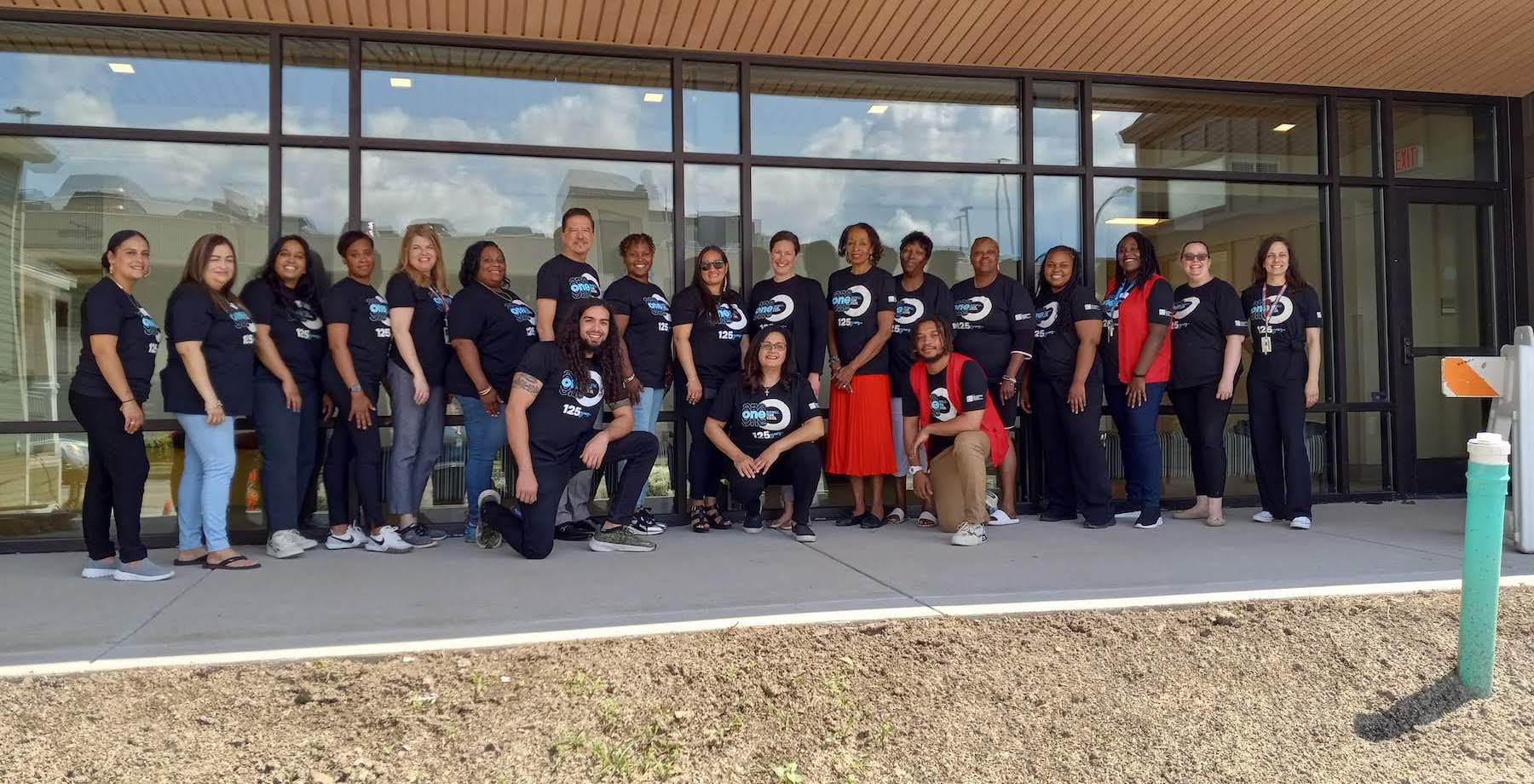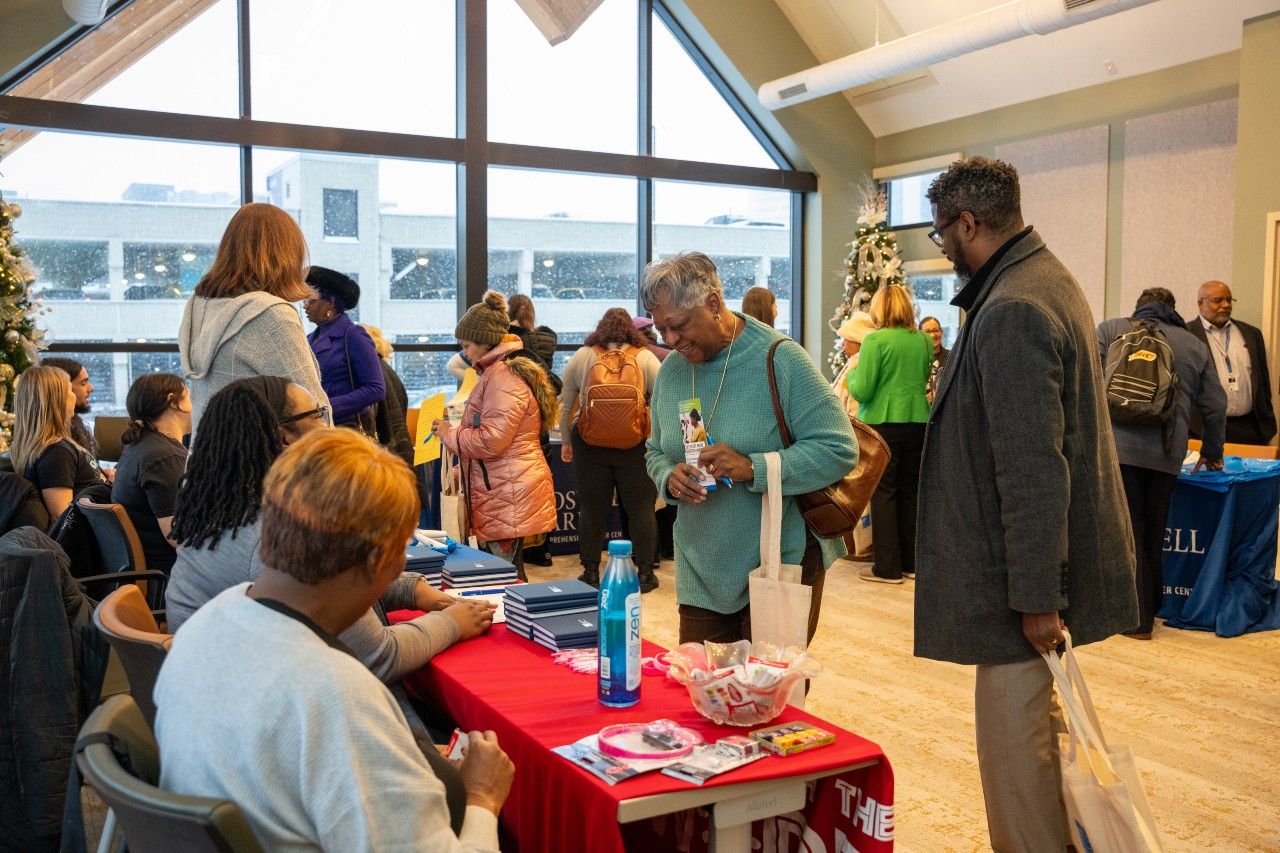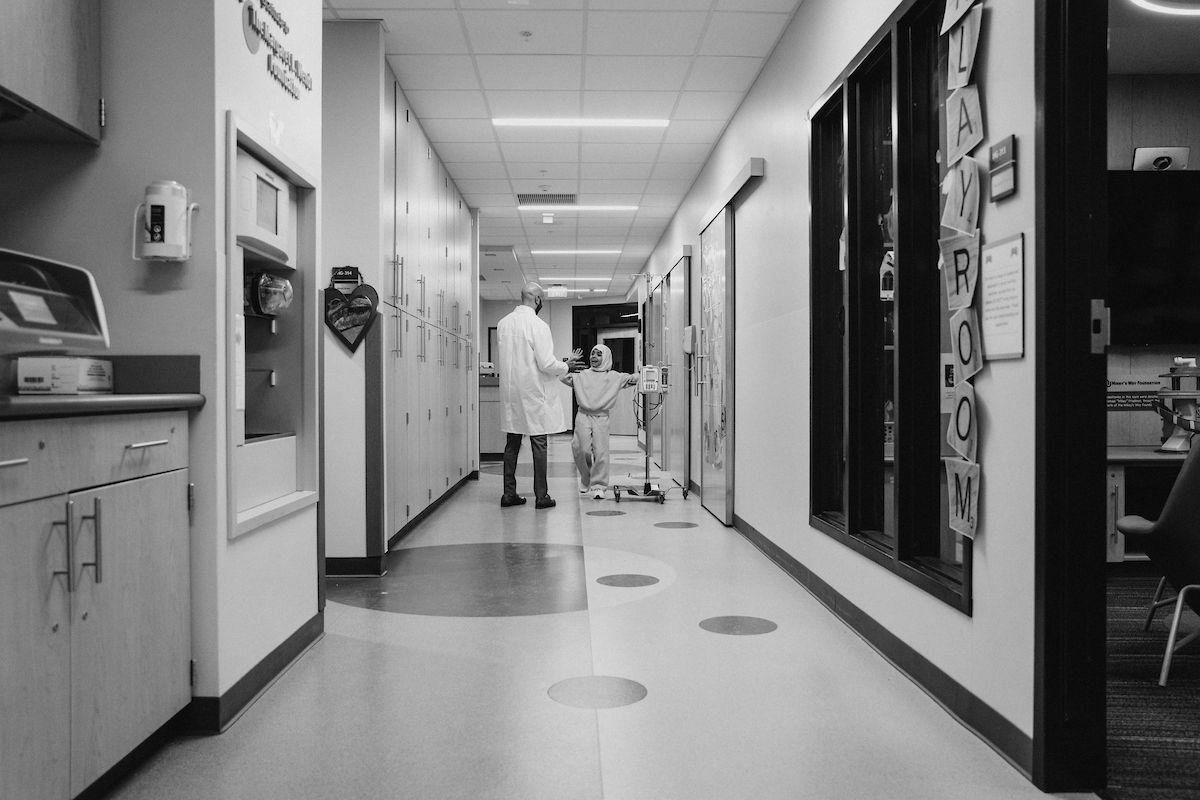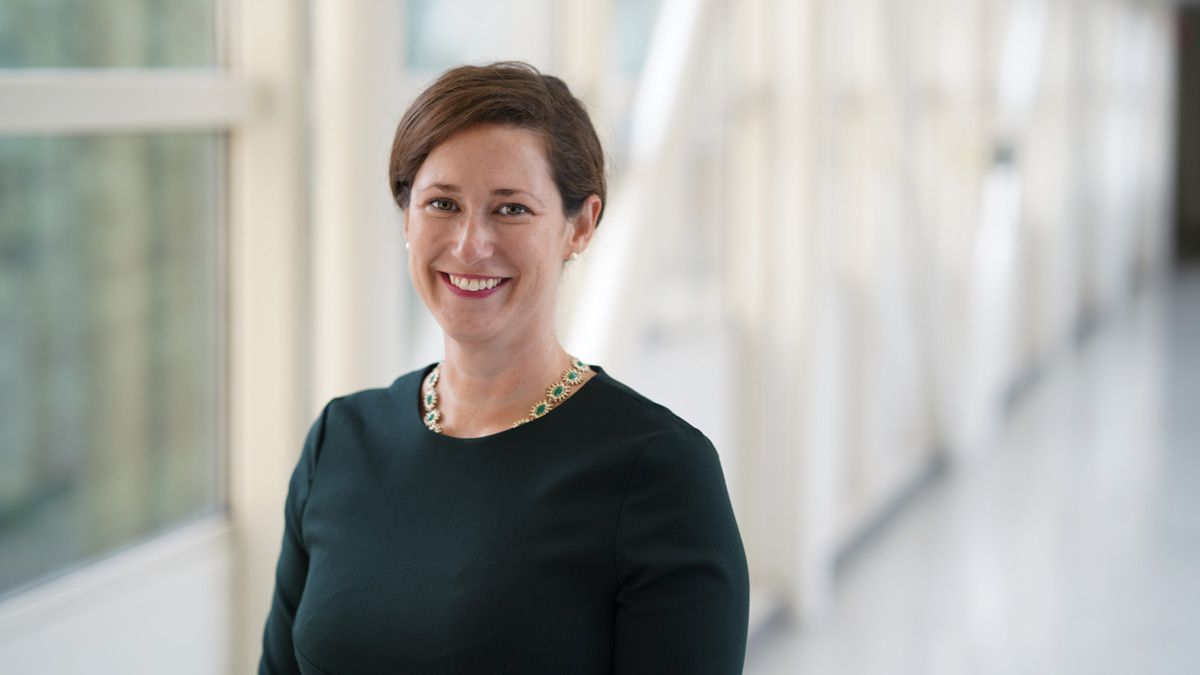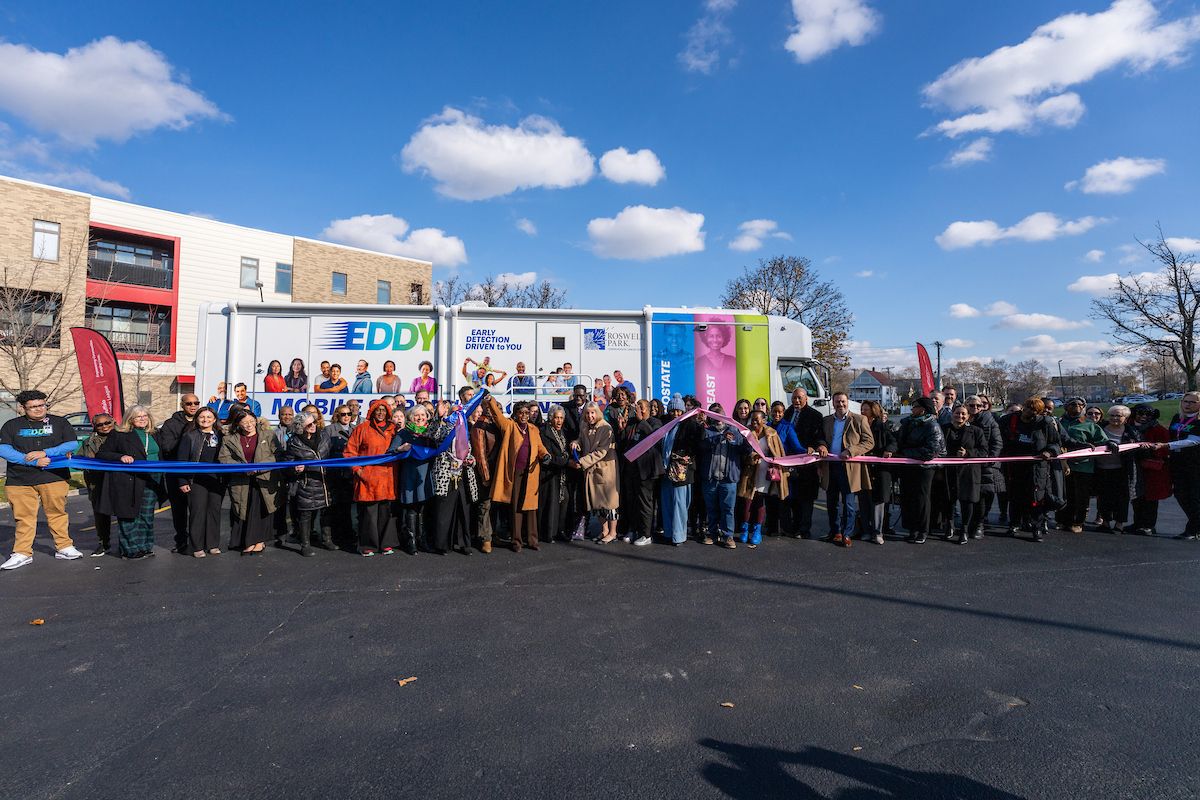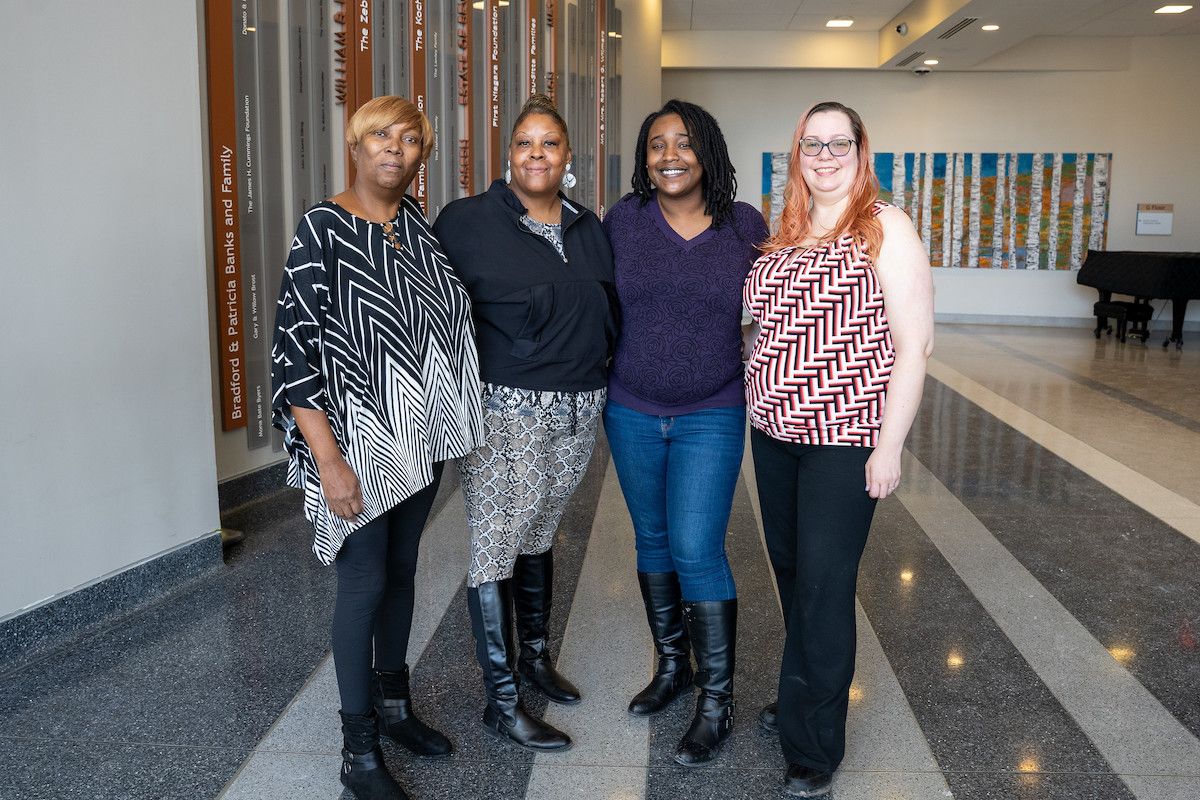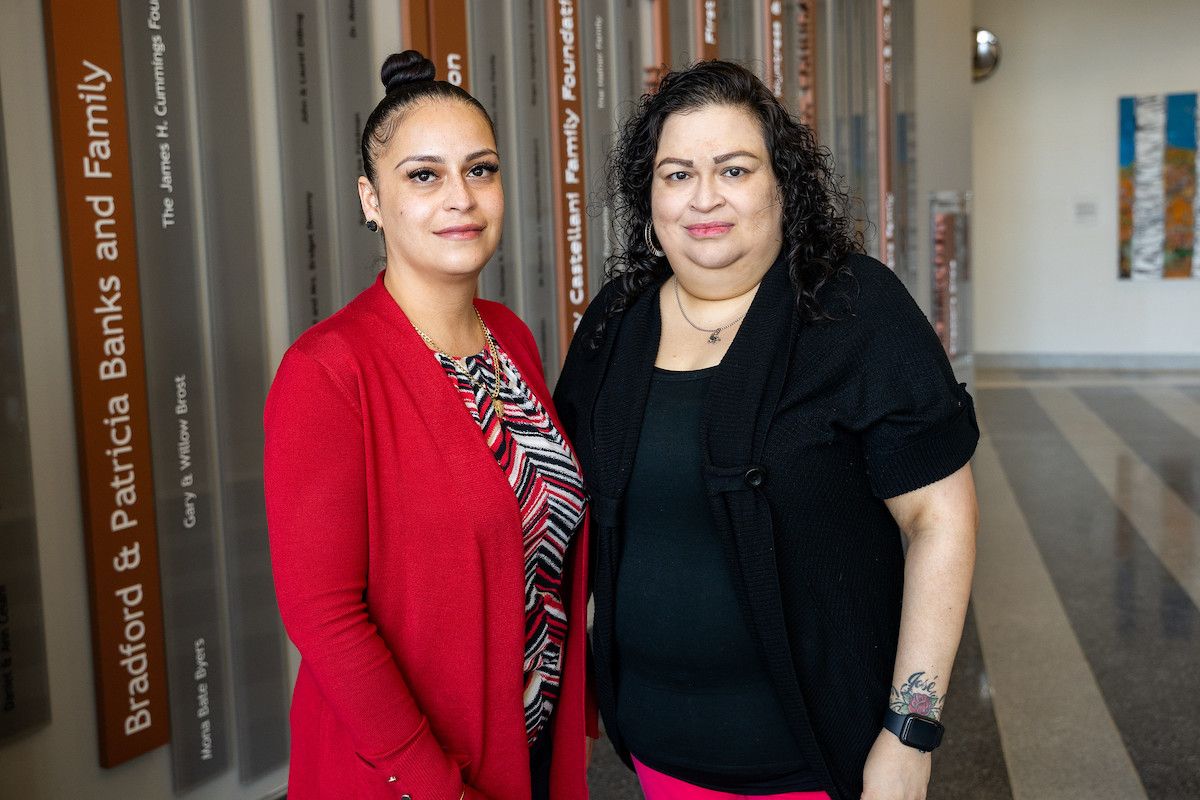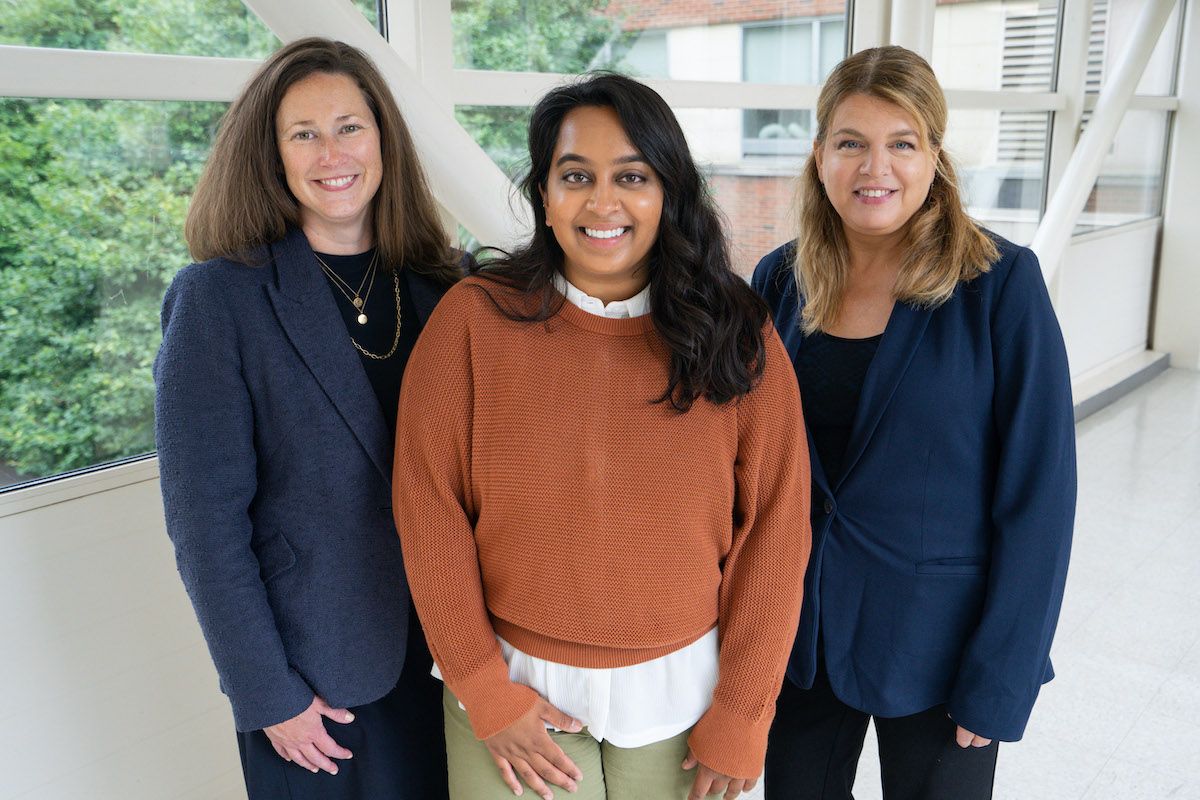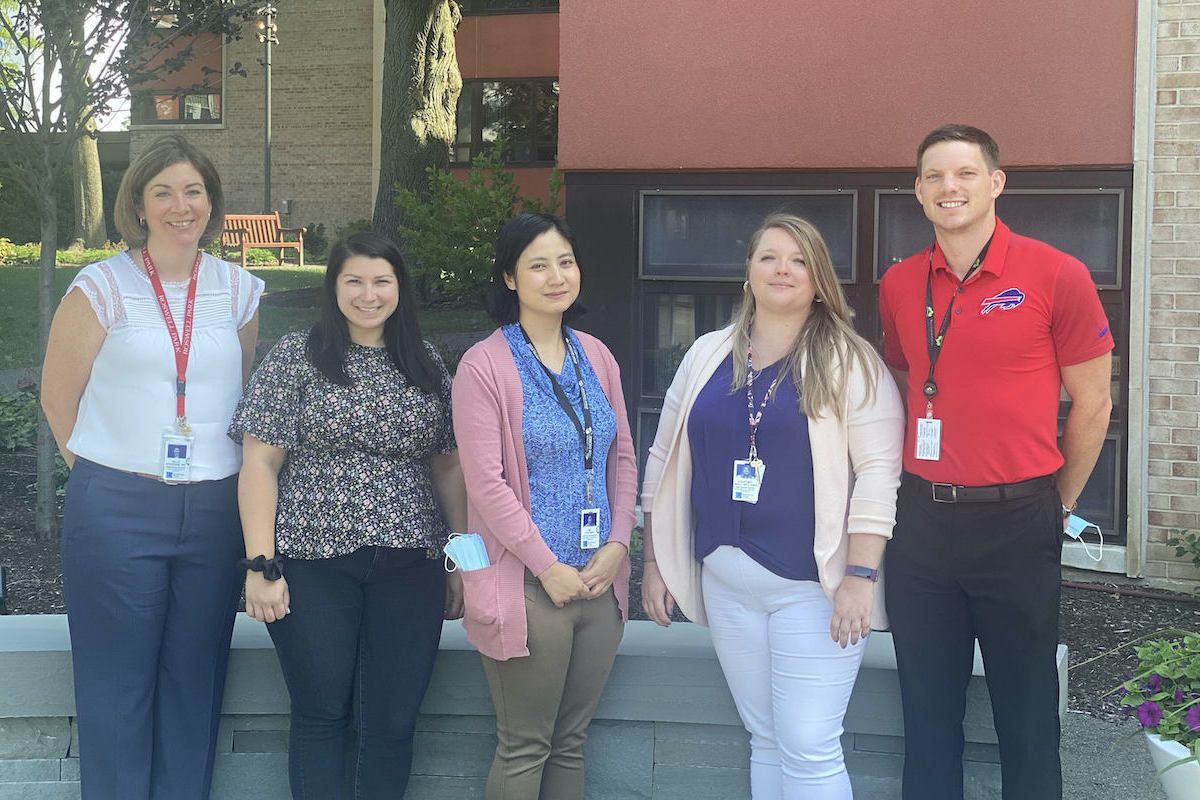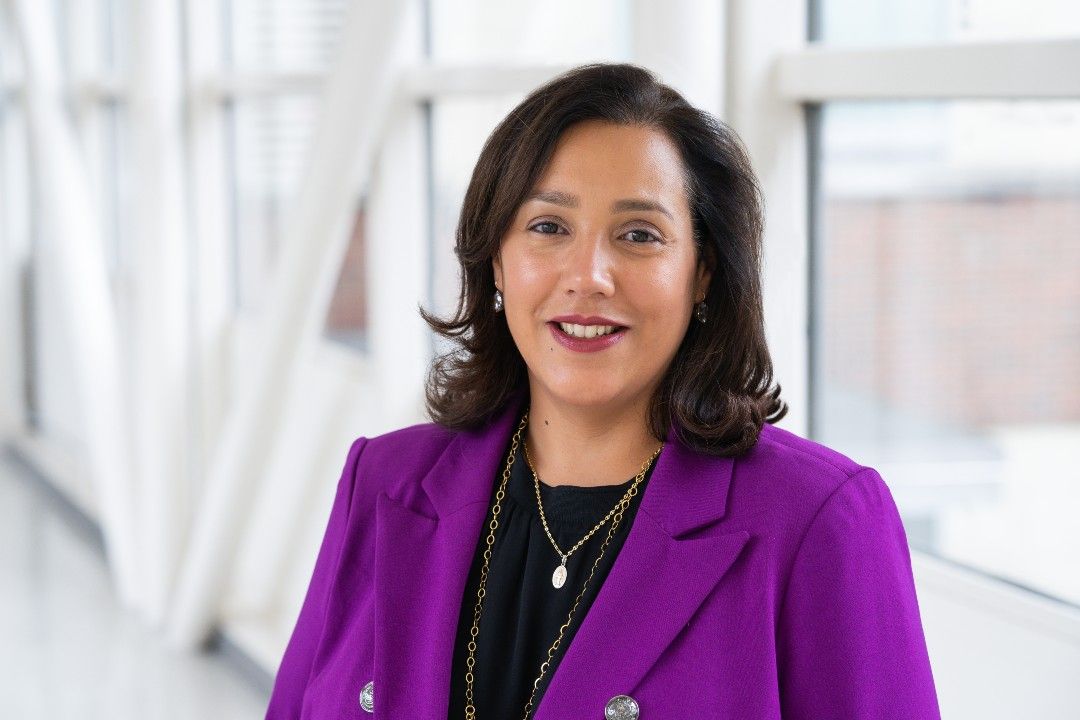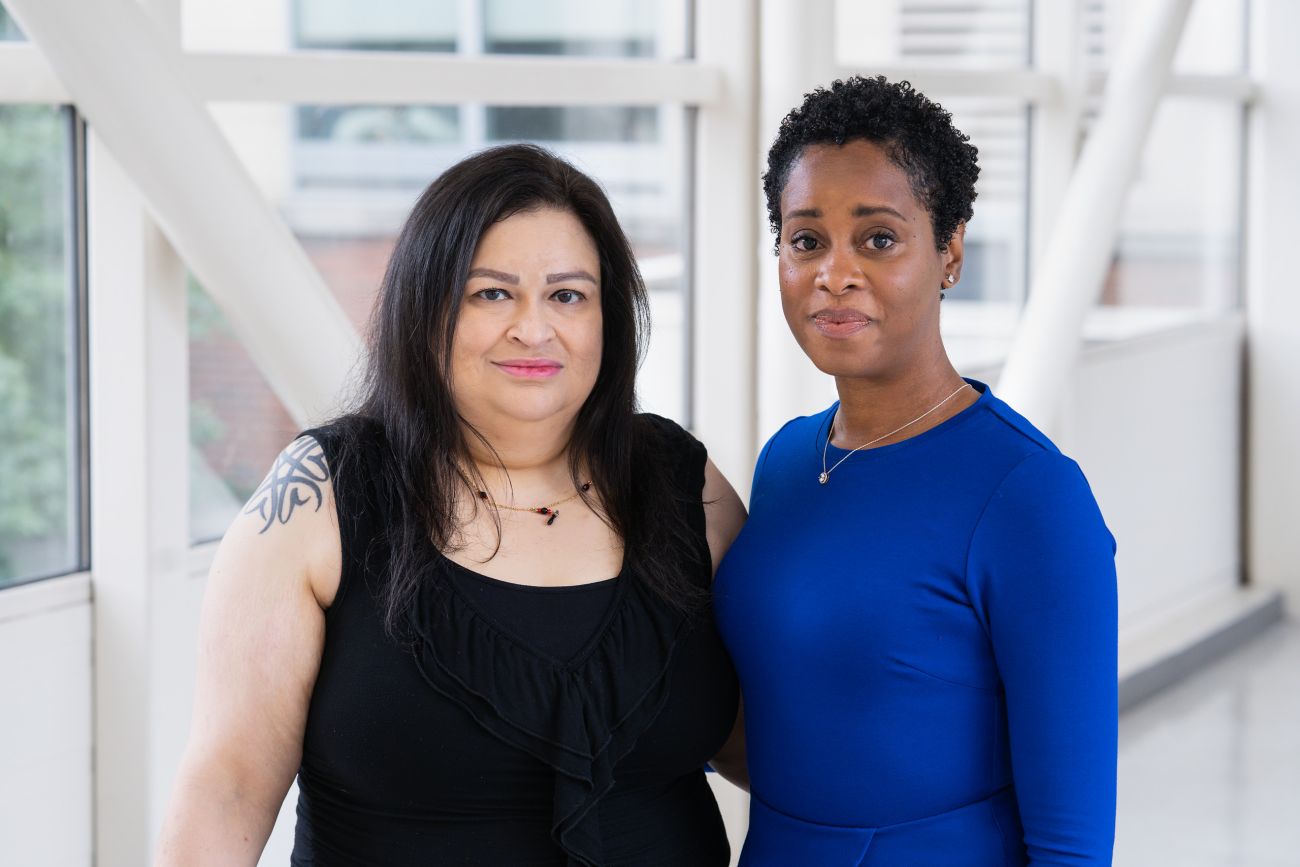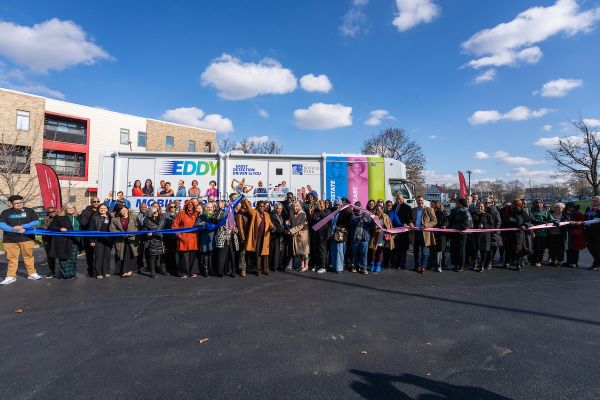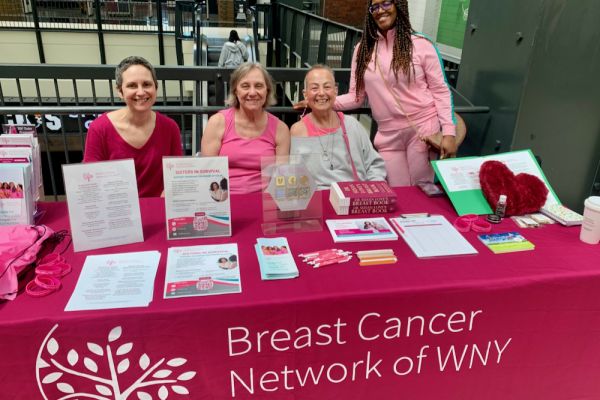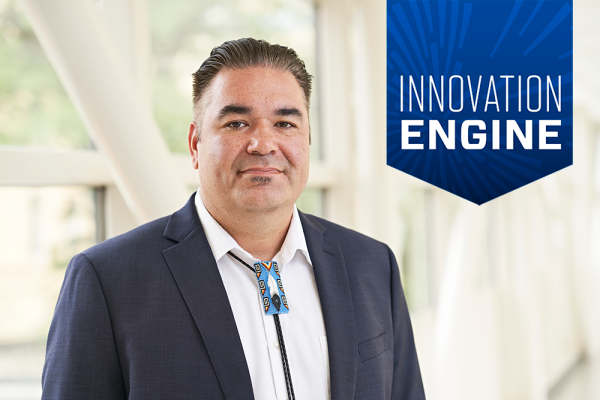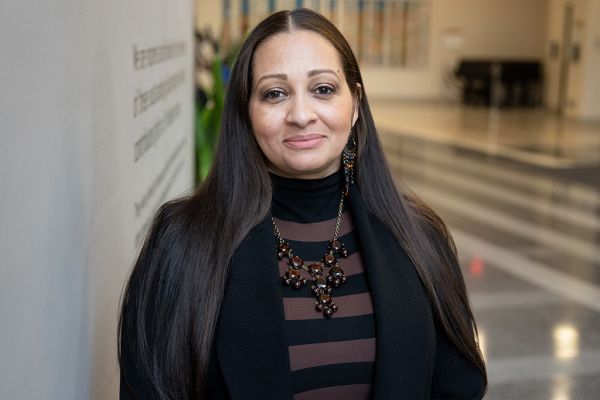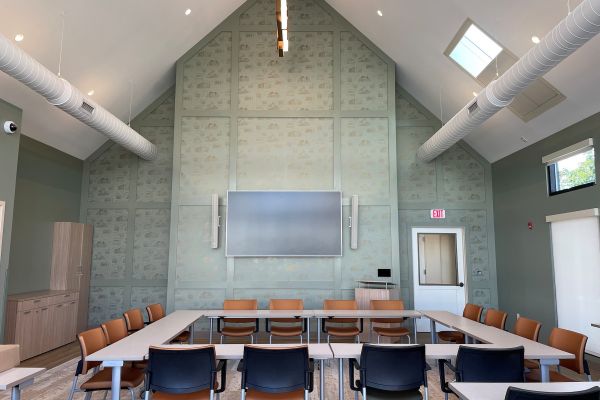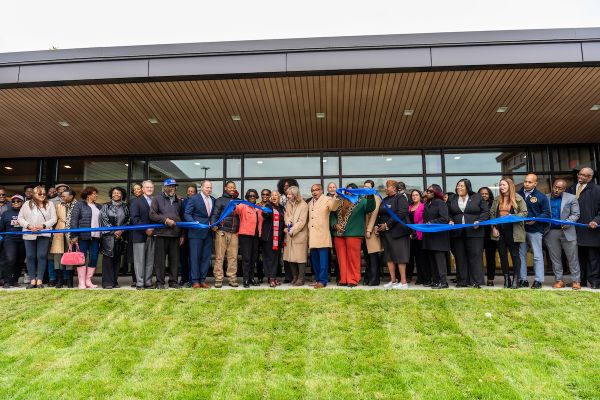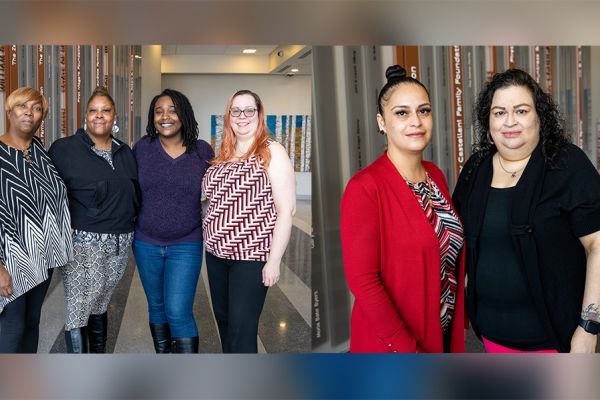Reducing the risk of cancer in vulnerable communities
Our multidisciplinary team of cancer scientists and outreach specialists are unraveling the complexities of who is most at risk for cancer and why. And with improved screening and education, we can begin to address these inequities and reduce the cancer burden.
Mission
Our mission is to build partnerships and deliver services to reduce the cancer burden among the people and communities we serve, especially for those most in need.
Goals and objectives
The primary goals of Community Outreach and Education research at Roswell Park are advancing the understanding of health disparities, and creating integrated community-based services and educational programs tailored to meet the needs of these populations.
Community Outreach & Engagement Center
Our community room holds workshops, classes, trainings, meetings, and events that provide community members opportunities to connect, learn and promote health and wellness.
Roswell Park in the Community
Highlighting research, spinning for cures, a double EDDY sighting and more!
“Our mission is to build partnerships and deliver services to reduce the cancer burden among the people and communities we serve, especially for those most in need.”
Meet EDDY!
EDDY — Early Detection Driven to You — is cancer screening on wheels designed to make it easy for you to get screened for breast, lung and prostate cancer. EDDY is outfitted with state-of-the-art screening technology funded by New York State to bring life-saving cancer screening to the New Yorkers who need it most, especially medically underserved and racially diverse populations.
Research and education programs
National Witness Project (NWP)
The NWP educates and engages participants on early cancer detection through stories told by breast and cervical cancer survivors in churches and community settings.
Learn moreEsperanza y Vida (EyV)
Meaning “Hope and Life” in Spanish, Esperanza y Vida is a program that educates and helps increase breast, cervical cancer and diabetes screening in Latinas living in rural and urban areas.
Learn moreCARE Lab
The Roswell CARE Lab is passionate about understanding more about caregiving so that we can develop strategies to reduce suffering and enhance outcomes that matter to caregivers and patients.
Learn moreClinic-Based Navigation
Our patient navigators work closely with the primary care providers at Federally Qualified Health Centers across Western New York to provide support and navigation related to cancer screening.
Learn moreROCKstars
Launched in 2017, Roswell Park’s Research Oncology Community Knowledge program — ROCKstars — helps ensure survivors, patients and caregivers have a seat at the table when it comes to safeguarding and improving patient care and comfort.
Learn moreRoswell AIR
Roswell’s AIR (Awareness, Information and Resources) for Lung-Cancer Screening program partners with the community to reduce barriers to lung-cancer screening among underserved communities in Western New York, especially Blacks, Hispanics and senior citizens.
Learn moreNews and media
Contact us
Office of Community Outreach and Engagement
Roswell Park Comprehensive Cancer Center
907 Michigan Ave.
Buffalo, New York 14204
Phone: 716-845-8340
Fax: 716-845-4454
